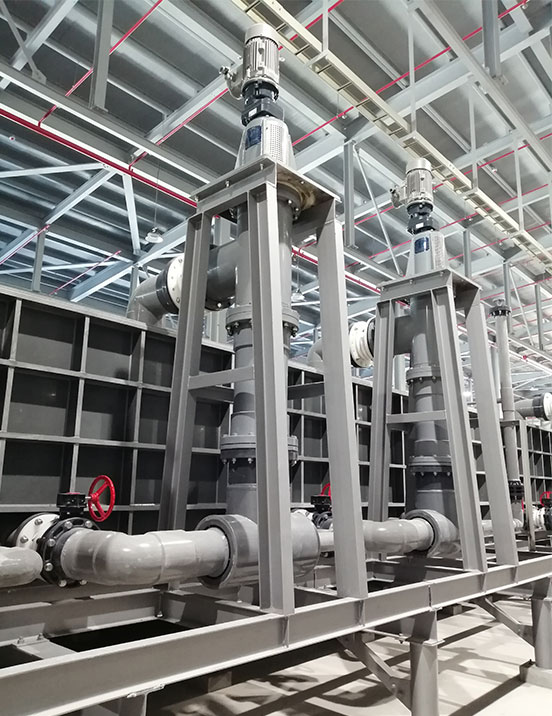Variations in operating parameters can significantly impact the performance and efficiency of a mixer settler in liquid-liquid extraction processes. These parameters include factors such as temperature, flow rates, phase ratios, and mixing intensity. Here’s how variations in these parameters affect the mixer settler:
Temperature:
Effect: Temperature influences the viscosity and density of the liquid phases, as well as the solubility of components in each phase. Higher temperatures generally decrease viscosity and increase solubility, affecting phase separation kinetics.
Impact: Optimal temperature control ensures efficient phase separation and enhances mass transfer rates. Extreme temperatures can lead to phase instability, emulsion formation, or thermal degradation of process fluids, reducing separation efficiency.
Flow Rates:
Effect: Flow rates of both the aqueous and organic phases determine the residence time within the mixer settler. Higher flow rates increase the throughput but may reduce residence time, potentially impacting phase separation.
Impact: Balancing flow rates is crucial to maintain proper mixing and settling times. Variations in flow rates can affect the distribution of components between phases and alter the equilibrium achieved during extraction, thus affecting overall efficiency.
Phase Ratios:
Effect: The ratio of the aqueous phase to the organic phase (A/O ratio) affects the distribution of components between phases. Different phase ratios can shift the equilibrium point and influence the extent of extraction.
Impact: Optimizing phase ratios ensures maximum extraction efficiency. Deviations from optimal ratios may result in incomplete extraction or excessive use of solvent, affecting process economics and product purity.
Mixing Intensity:
Effect: Mixing intensity determines the extent of phase dispersion and interfacial area available for mass transfer. Higher mixing intensities promote faster equilibrium attainment but may also increase energy consumption.
Impact: Variations in mixing intensity can alter the extraction kinetics and affect phase separation efficiency. Proper control of mixing intensity ensures uniform distribution of components and minimizes interfacial resistance, enhancing overall performance.

Residence Time:
Effect: Residence time in the mixer settler dictates the duration for which phases are in contact, influencing the extent of mass transfer and phase equilibrium.
Impact: Insufficient residence time may result in incomplete extraction, while excessive residence time can lead to increased operating costs and reduced throughput. Optimizing residence time based on process kinetics and phase characteristics is critical for achieving desired separation efficiency.
pH and Chemical Environment:
Effect: pH and chemical additives can alter the solubility and distribution of components between phases. Changes in pH affect the ionization state of acids and bases, impacting their partitioning behavior.
Impact: Maintaining stable pH conditions and controlling chemical additives ensures consistent extraction performance. Variations in pH or chemical environment can lead to phase destabilization, emulsion formation, or changes in extraction selectivity.
Operational Stability and Control:
Effect: Variations in operational stability, such as equipment malfunctions, fluctuations in utility supply (e.g., power, water), or human error, can disrupt process continuity and affect performance.
Impact: Implementing robust process control measures and monitoring systems helps mitigate the impact of operational variations. Ensuring equipment reliability and operator training are crucial for maintaining consistent performance and maximizing efficiency.
Variations in operating parameters can significantly influence the performance and efficiency of mixer settlers in liquid-liquid extraction processes. Understanding these parameters and their effects allows operators and engineers to optimize process conditions, improve extraction yields, maintain product quality, and enhance overall process economics.